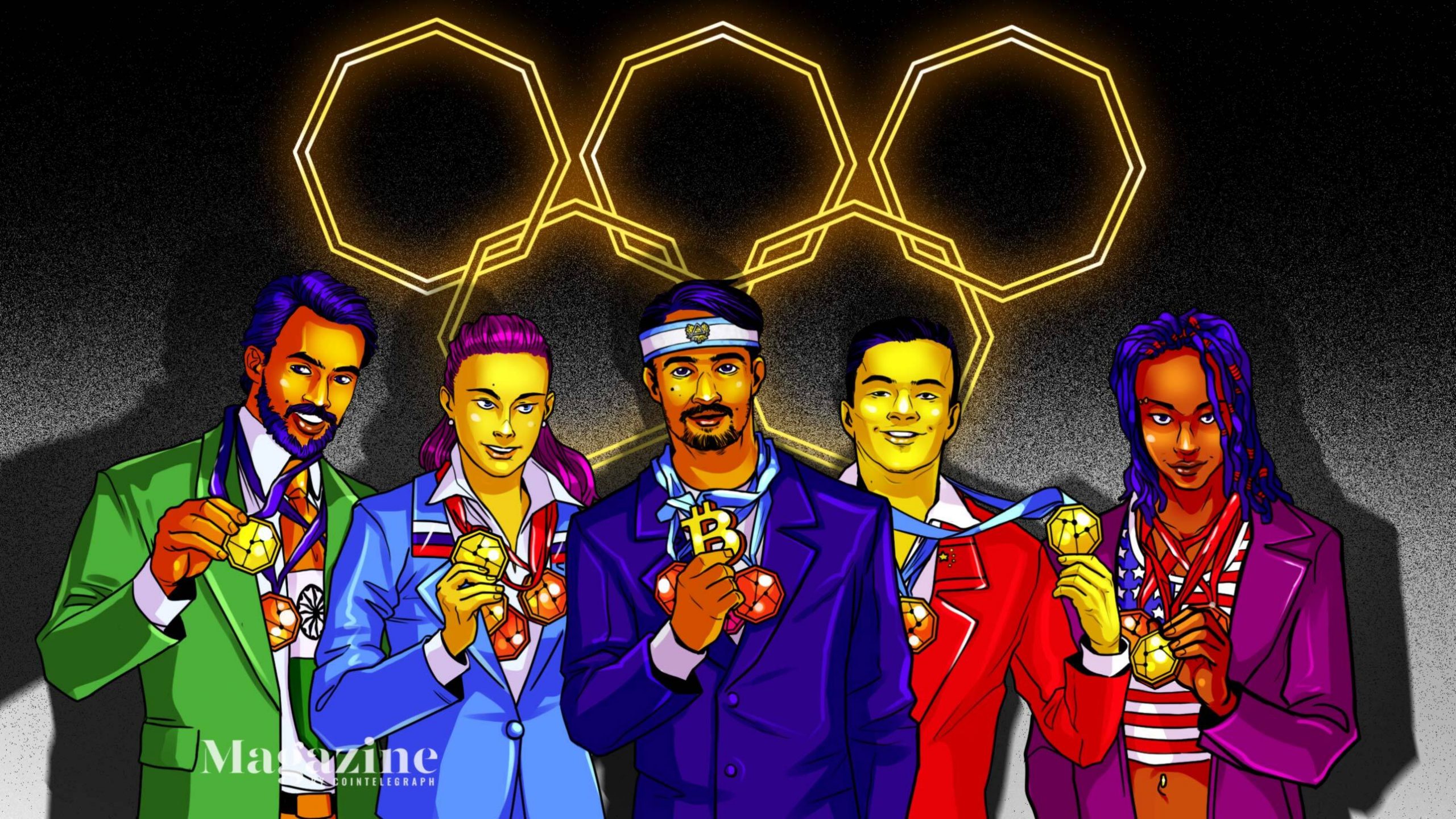
Tracking sperm on Bitcoin with Eggschain — Wei Escala – Cointelegraph Magazine
What if sperm were uploaded — or perhaps, erm, unloaded — onto the Bitcoin network, and those seeking to become pregnant could turn the emotional, complex task into something more approachable, where they choose the right swimmers on the blockchain according to attributes like education level, hobbies and physical attributes? Wei Escala is the founder and CEO of Eggschain, an Austin-based startup building a supply chain solution for the assisted reproduction industry. In vitro fertilization (IVF) is the process of implanting a fertilized egg into a woman’s ovaries in order to induce pregnancy. This requires sperm, which is sometimes contributed by a partner and sometimes by a donor.It’s part of a new breed of projects built on Stacks, a blockchain that shares a native connection with Bitcoin through proof-of-transfer, which “enables decentralized apps, smart contracts, and digital assets” to be settled and verified on Bitcoin blocks. Eggschain is one of these new decentralized apps, or DApps.But why do sperm donations and embryo implantations need to be registered on a blockchain, to begin with? The answers lie in scalability for a seamless sperm selection process across various jurisdictions, not to mention high-level patient-data protection, guarding against loss or misfiling of data, and making the system more transparent overall.If things go well, Eggshain’s blockchain-based matching solution may soon bear fruit around the world. It’s not here yet, but the revolution is coming.EggschainEggschain’s blockchain is secured by Bitcoin via Stacks, a Y Combinator-incubated startup “building a user-owned Internet secured by Bitcoin.” In practice, this means that Stacks operationalizes smart contracts and DApps, such as Eggschain, by synching up with Bitcoin on every 10-minute block to embed an indelible, permanent record. Dear community, the moment we have all been waiting for.We couldn’t be happier to announce our first cohort of 25 startups building on Bitcoin w/ Stacks.👉 https://t.co/2iZ1kOiGhy 👈— startups.btc (@StacksStartups) June 23, 2021 The Eggschain solution has not yet been released. “I don’t want to commit to a timeline,” Escala says, in part because, “We are among the first developers building on the Stacks blockchain.” This seems to be a reasonable answer, as it is common for blockchain projects to hit delays — whether caused by technical, legal or budgetary challenges.While lower transaction fees influenced the choice to build on a Bitcoin sidechain instead of other chains like Ethereum, Bitcoin’s reputation as an incorruptible ledger was decisive. Bitcoin “will be around for hundreds or thousands or millions of years,” Escala says, as if stating a basic scientific fact. While speaking of millions of years can be written off as overzealous marketing, choosing a chain to track reproduction means backing the one most likely to survive far into the future.“Bitcoin is the oldest blockchain in the world and very established, and the gas fees are low compared to some of the other leading blockchains by a huge magnitude.”Escala explains that “When your sperm is donated, that is a transaction that gets hashed onto the blockchain,” complete with an indelible time stamp. Further transactions take place “when the sperm is implanted into a woman or into an egg.” The time between egg fertilization and implantation can stretch for years, and sperm has been kept frozen for as long as 22 years and still been used successfully.In practice, this means that a donor will be able to see how many times their sperm has been used, giving them a rough idea of how many children they might have and in what general areas. This may even serve to gamify the sperm donation experience, even if the donor is not willing to ever be contacted by their offspring. Though Bitcoin itself is a transparent blockchain that allows transactions to be traced back, Escala explains that Eggschain, as it functions with Stacks, cannot be “backtracked” in such a way that the “family tree” can be tracked up and down. This is by design, as “Just because someone received your donated sperm, it doesn’t give them the authority to read through your life — it is almost an invasion of your privacy,” according to Escala.“Patient identifiable information cannot be on the blockchain.”Freezing desireIn India and much of Africa, it is normal for women to have their first baby by the age of 20. At 25, the United States represents the lowest mean age in the Western world, with the average first-time mother in countries like Germany, Singapore, Japan, the United Kingdom and Australia flirting with or even surpassing 30 — the age at which fertility begins to decline.Though access to contraceptives and changed values contribute to the higher ages in the West, careers and finances often play a role. The pressure to delay pregnancy is all the more increased with the modern reality that career growth often requires frequent moving between offices and countries — though perhaps the work-from-home era will bring change. Heath issues like cancer, which is rising worldwide, is another driver for the treatment, as woman seek to preserve their eggs before they are potentially damaged through chemotherapy treatment. All things considered, it is easy to see why many women are choosing to freeze their eggs — just in case they decline in quality or run out before they want to use them. Eqq quality begins to reduce at 30 and drops fast from 35. Source: SheCares When her best friend chose to freeze her eggs in 2018, Escala “was a witness every step of the way — I felt like I almost lived through the entire experience.” In addition to a friend, however, she is a businesswoman, and she sensed an opportunity to improve the IVF process.In June 2018, Escala founded Eggschain.Breeding processProvided there is no preselected partner, the process of choosing sperm — or more accurately, a sperm donor — is an intimate and difficult one. For one, donors need to be checked at “an established lab for STDs, HIV and any hereditary diseases,” with their sperm held in quarantine for often up to six months.Depending on the sperm bank and the laws of the donor’s country, there is…

















